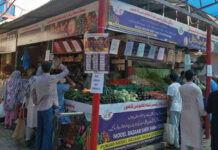The Economic Coordination Committee (ECC) has directed all ministries and divisions to replace insurance guarantees with bank guarantees in cases involving public funds. The decision was made during discussions on a proposal by the Revenue Division (FBR) regarding safeguards against misuse of the Export Facilitation Scheme (EFS).
According to a news report, the FBR informed the ECC that before the introduction of EFS in 2021, three export facilitation schemes were in place: the Manufacturing Bond Scheme, the Duty and Tax Remission for Export (DTRE), and the Export-Oriented Unit (EOU) Scheme. These schemes allowed duty and tax-free access to inputs for exporters without requiring refunds, ensuring compliance and reducing misuse risks.
However, the EFS replaced these schemes and introduced new provisions, including an extended input utilization period of up to five years, automatic input approvals, and insurance guarantees as security instruments.
The FBR stated that several instances of EFS misuse had been detected, where duty-free imported goods were sold in the local market instead of being used for exports. Cases of vendor facility abuse and unauthorized domestic sales of imported inputs were also reported. Data analysis revealed that many EFS users, particularly small and medium enterprises (SMEs) and new entrants, had failed to achieve the required value addition and had not exported their stocks as mandated under the scheme.
Concerns about these loopholes were raised by trade bodies, including the Karachi Chamber of Commerce & Industry (KCCI), the All Pakistan Textile Mills Association (APTMA), the SITE Association, and the Pak-Afghan Joint Chamber of Commerce & Industry. These organizations urged the government to introduce safeguards to prevent revenue losses while ensuring that genuine exporters continued to benefit from the scheme.
In response, the Revenue Division proposed key amendments to EFS, including reducing the utilization period of input goods from five years to nine months, with extensions granted only in exceptional cases. Input authorization will be based on prior determination of production capacity by the Input-Output Co-Efficient Organization (IOCO) within 60 days. Moreover, insurance guarantees, which were deemed vulnerable to misuse, will be replaced with bank guarantees.
Further recommendations include restricting vendor facility access to businesses with prior export history, requiring real-time tracking of goods supplied to vendors, and introducing a risk-based system for testing samples to verify the use of imported inputs in exported goods. Additionally, the inclusion of the iron and steel scrap industry in EFS, particularly for copper extraction and export, has led to negative value addition. Therefore, it is proposed to exclude iron and steel scrap from the scheme.
During discussions, ECC members raised concerns that prior stakeholder consultations, as required under Rule 18(4) of the Rules of Business 1973, had not been conducted. However, the FBR clarified that the summary had been shared with relevant ministries and divisions, but they had not provided feedback despite a 14-day deadline. The ECC subsequently directed the Ministries of Industries & Production and Commerce to submit their recommendations directly to the Federal Cabinet before its next meeting.























